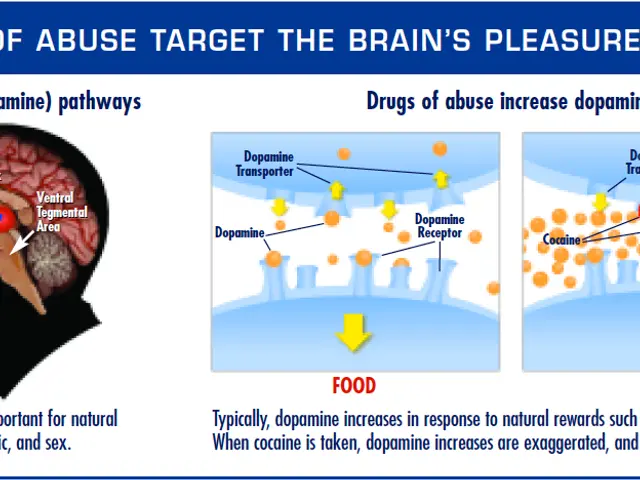Rapid and Essential Action against Meningococcal Illness
In Germany, the number of severe meningococcal disease cases has seen a decrease from 344 last year to 227 so far this year, according to recent data. However, a tragic case in Potsdam has raised concerns and prompted a proactive response from health authorities.
Last Tuesday, a seven-year-old pupil in Potsdam lost his life due to a meningococcal infection. The city announced the sad news on Wednesday. Meningococci, bacteria transmitted through droplets during coughing or sneezing, can cause life-threatening meningitis or sepsis, with young children being most affected.
In response to this case, around 380 people who have had contact with the boy or may be contact persons are being treated prophylactically or offered treatment. This group includes classmates, possible contacts from the afterschool care and sports club, teachers, and people from the boy's residential area.
The health department in Potsdam is also investigating two further suspected cases of meningococcal infection. It is important to note that, so far, no meningococci have been detected in these suspected cases.
Meningococcal infections are rare but very dangerous in Germany, with around 34 deaths reported in 2023, according to the RKI. Quick treatment is crucial because the health of affected children can deteriorate dramatically within a few hours.
The Robert Koch Institute (RKI) states that close contact is required for infection. As of now, there have been 6 cases in Brandenburg in 2024 and 5 so far in 2025.
The Standing Vaccination Commission recommends vaccinations against various serotypes of the pathogen. Meningococcal disease is a notifiable disease, meaning that all cases must be reported to public health authorities.
Antibiotics have been administered in the suspected cases, and those affected are reportedly in good condition. The RKI stresses the importance of a quick recognition and treatment of meningococcal infection to prevent further spread and potential harm.
In light of the Potsdam case, it is a reminder for everyone to be aware of the symptoms and to seek medical attention promptly if concerned. Meningococcal disease often begins like a cold with fever and headache, but its rapid progression necessitates immediate action.
Read also:
- Europe's mandatory vaccination programs advocated by health officials in the face of mounting disinformation
- Rural farm communities sound the alarm over the perilous state of livestock deliveries
- Initial Nutrient for Boosting Immune System: Reasoning Behind Blueberries Being an Ideal First Food for Infants
- EU's ban on bean exports from Nigeria results in an annual loss of $363 million for the country, according to AAPN.








